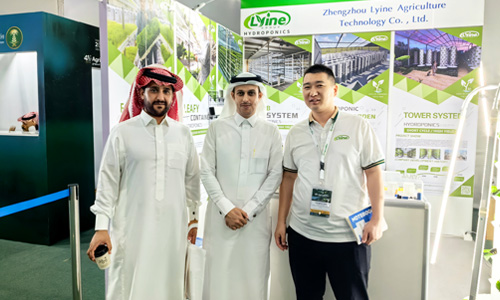In recent years, with global warming and population growth, traditional agriculture has faced increasing pressure. As a new planting mode, hydroponic agriculture has become one of the hot topics in today's agricultural development due to its advantages of high efficiency, water-saving, and environmental protection. Jamaica is also developing hydroponic agriculture with the aim of better promoting the development of Jamaican agriculture.
As a country with a typical Tropical climate, Jamaica has fertile land suitable for the growth of various vegetables and fruits. In terms of vegetables, Jamaica mainly grows legumes, tomatoes, peppers, beans, Zucchini, etc. In terms of fruits, Jamaica mainly produces bananas, papayas, pineapples, mangoes, guava, and West Indian cherries. In addition, Jamaica is also one of the largest coffee producing countries in the world. It also produces the world famous Jamaican Jamaican Blue Mountain Coffee coffee.
However, Jamaica's agriculture faces many challenges. Due to the concentration of agricultural production in the country on small-scale agriculture, efficiency is low and production costs are high. In addition, due to insufficient agricultural production technology and facilities, Jamaica's agricultural production efficiency is low, which also restricts the development of agriculture. In addition, due to Jamaica's variable climate, it is often affected by natural disasters, which also brings many difficulties to local agricultural production.

Jamaican hydroponic agriculture is a mode of planting that utilizes hydroponic techniques without the use of soil and professional hydroponic planting equipment. In this mode, the roots of the crop are suspended in the water, providing nutrients and water through nutrient solutions. Compared to traditional agriculture, Jamaican hydroponic agriculture has the following advantages:
Firstly, this planting mode can significantly improve the yield and quality of crops. Due to the presence of crop roots in water, they can absorb nutrients and water more fully, resulting in faster and healthier growth. At the same time, since soil is not needed, it also avoids problems such as soil infectious diseases and pollution.
Secondly, Jamaica's hydroponic agriculture is water-saving and environmentally friendly. In traditional agriculture, a large amount of water is wasted in irrigation and evaporation, while in hydroponic agriculture, water can be recycled, thereby reducing water consumption. At the same time, as there is no need to use chemical substances such as fertilizers and insecticides, it also avoids environmental pollution.

Finally, this planting mode can significantly improve the efficiency of agricultural production. Traditional agriculture requires a large amount of manpower for management and maintenance, while hydroponic agriculture can achieve automated management and monitoring through automation technology, thereby reducing labor costs and management difficulties.
Hydroponic greenhouses and indoor hydroponic farms are typical representatives of the development of hydroponic agriculture. Compared to traditional greenhouses, greenhouses and indoor farms supported by hydroponic technology have more significant advantages. I believe that with the continuous progress of technology and the improvement of people's awareness of environmental protection in the future, this new agricultural model will be more widely applied and promoted.






.jpg)

.jpg)
